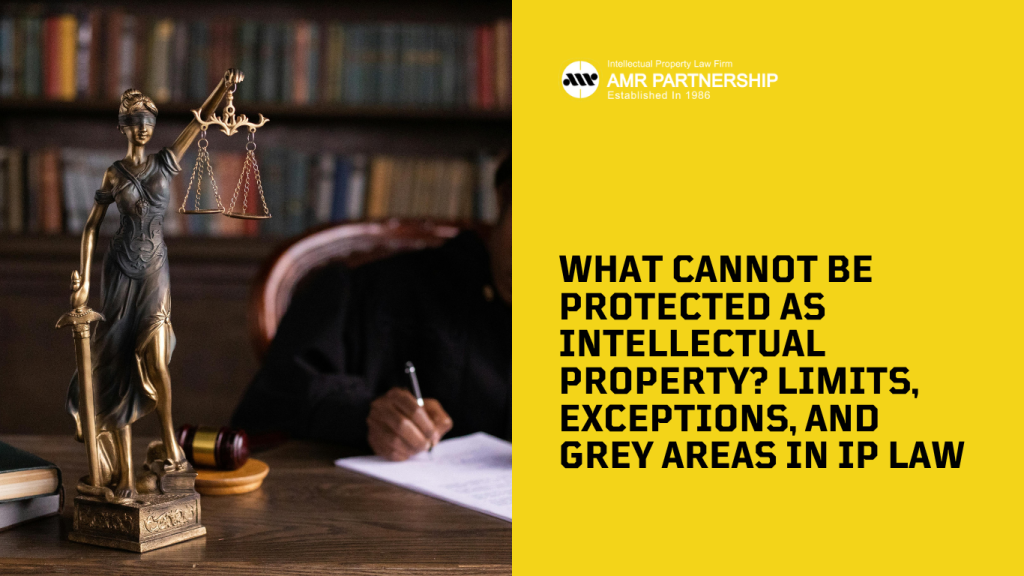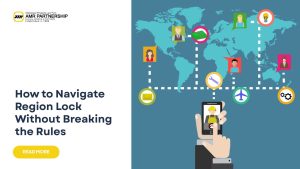
When discussing intellectual property (IP), we often focus on what can be protected—patents, trademarks, copyrights, and more. But equally important is understanding what cannot be protected as intellectual property. At AMR Partnership, a trusted Intellectual Property firm in Indonesia since 1986, we provide expert consultation on all areas of IP law, including the grey zones and legal limitations.
AMR Partnership offers services in Patent, Trademark, Copyright, Industrial Design, Plant Variety Protection, Geographical Indication, IC Layout Design, Trade Secret, and Litigation. Our team of specialists is ready to guide you in navigating what can or cannot be protected—ensuring your innovations are legally sound and commercially safe.
Abstract Ideas, Algorithms, and Natural Phenomena
Why Abstract Ideas Are Excluded from IP Protection
Abstract ideas—such as mathematical formulas, theories, or general principles—are not eligible for protection under patent or copyright law. While these concepts are fundamental to innovation and scientific development, they cannot be owned. For example, E=mc^2 or the law of gravity cannot be patented, even if they are groundbreaking discoveries.
This restriction exists to maintain open access to knowledge that benefits humanity as a whole. However, the application of such ideas in a specific and practical manner may be protected. At AMR, we help clients assess whether their innovations are specific enough to be eligible for protection.
The Algorithm Dilemma
Pure algorithms—especially those not tied to a specific technical implementation—are generally not protectable. In IP law, especially in jurisdictions like the U.S. and EU, the line between unpatentable abstract algorithms and patentable software applications is thin.
Our legal team at AMR Partnership is experienced in dealing with software IP. We evaluate whether your code or tech process can be protected as a copyright, a utility model, or under trade secret law.
Common Property and Public Domain Content
What Falls into the Public Domain?
Public domain materials are works whose intellectual property rights have expired, been forfeited, or were never applicable. This includes:
- Classic literature (e.g., works of Shakespeare)
- Expired patents
- Government publications (in many countries)
These works are free for public use, adaptation, and distribution. Trying to claim exclusive rights over public domain material can lead to legal disputes.
If you are uncertain about whether a work is in the public domain, AMR can verify and provide clear legal guidance. Don’t risk an infringement lawsuit due to misunderstanding IP scope.
Traditional Knowledge and Folklore
Many indigenous works and cultural expressions—like traditional dances, songs, or remedies—are considered part of communal heritage. These are not usually protected by standard IP frameworks.
However, Indonesia recognizes Geographical Indications and is developing frameworks to help communities protect their heritage. At AMR, we assist in applying for Geographical Indications and other protective mechanisms tailored for traditional works.
Names, Titles, and Short Phrases
Limitations of Copyright on Short Texts
Copyright law does not protect names, slogans, or short phrases. These elements are considered too minimal to carry originality. For instance, you cannot copyright a brand name or a tagline like “Just Do It.”
However, such phrases may qualify for trademark protection if they are distinctive and used in commerce. This is where AMR can support your business by filing trademark applications and ensuring your branding is secure.
Navigating Trademark Registrability
Not every phrase or name is eligible for trademark protection. Generic terms or descriptive words are often rejected. For example, trying to trademark “Laptop” for a computer brand would likely fail.
AMR Partnership offers comprehensive services for trademark registration and dispute handling. Our expertise ensures that your mark is distinctive, legally viable, and enforceable.
Ideas Without Expression or Implementation
The Idea-Expression Dichotomy in Copyright Law
In copyright law, only the expression of an idea is protected—not the idea itself. So if you have a plot for a novel or a concept for a video game, it won’t be protected until it’s expressed in a tangible form like a manuscript or coded software.
This legal principle prevents monopolization of general themes or concepts. It fosters creative competition by allowing multiple expressions of similar ideas.
At AMR, we guide creators in documenting and expressing their ideas effectively, making them eligible for copyright protection.
The Role of Trade Secrets in Protecting Ideas
If you wish to protect an idea without public disclosure, trade secrets may be a more suitable legal framework. This involves non-disclosure agreements, internal company protocols, and secure documentation.
AMR helps businesses set up robust trade secret protection systems, ensuring their proprietary knowledge remains confidential and secure.
Scents, Tastes, and Other Non-Traditional Marks
Are Sensory Marks Protectable?
Traditionally, IP law has focused on visual and textual elements. However, some jurisdictions now allow registration of non-traditional marks like scents and sounds. Tastes, however, are still largely unprotected due to their subjective nature and difficulty in consistent representation.
AMR helps clients explore whether their unique sensory branding—like a jingle or signature scent—can be registered as a trademark.
Challenges in Registering Sensory Marks
Registering these marks comes with hurdles:
- Must be distinctive
- Must be consistently perceivable
- Requires a precise method of representation
AMR provides strategic guidance on how to meet these conditions and successfully register non-traditional marks.
Illegal, Immoral, or Misleading Creations
Legal and Ethical Boundaries in IP
IP protection is not available for creations that promote illegal or unethical behavior. For instance, a device designed solely for cheating in exams or pirated software cannot be patented or copyrighted.
Similarly, trademarks deemed offensive or deceptive may be rejected by registration authorities.
Our legal team at AMR evaluates all ethical and legal aspects of a creation before proceeding with IP registration, ensuring your applications align with public policy.
Moral Standards Across Jurisdictions
Moral standards vary across countries. What is permissible in one jurisdiction may be prohibited in another. AMR’s international network allows us to provide country-specific advice and strategies for global protection.
Why Work with AMR Partnership?
Established in 1986, AMR Partnership is Indonesia’s trusted IP law firm, offering end-to-end services in:
- Patent
- Trademark
- Copyright
- Industrial Design
- Plant Variety Protection
- Geographical Indication
- IC Layout Design
- Trade Secret
- Commercial & Litigation Services
We help clients navigate grey areas in IP law and provide practical legal solutions. Whether you’re unsure about what can be protected or facing IP disputes, we’ve got your back.
Trust AMR Partnership—your guide through the complexities of intellectual property law.






